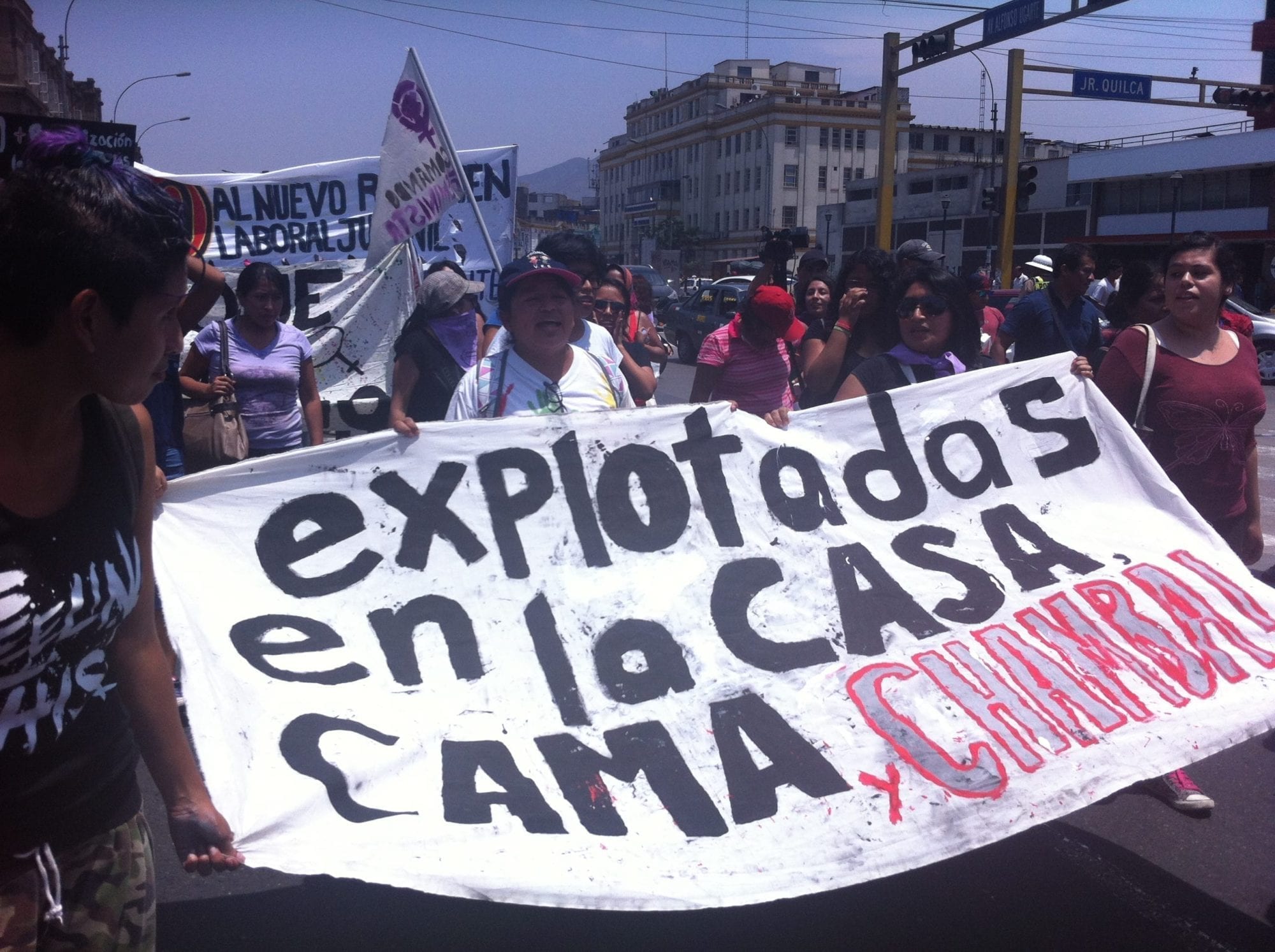
Jan 28, 2015

Credit: Solidarity Center/Luis Mendoza
Workers in Peru are celebrating the repeal this week of a labor law that targeted young workers, a huge victory that followed weeks of street demonstrations and protests by working people and their unions.
Peru’s Congress voted 114–91 to repeal the law, which reduced salaries and benefits for workers under age 25. A recent poll showed only one-fifth of Peruvians supported the law.
“They never asked young people what they thought,” says one worker, who took part in the protests.

The secretary general of the Topitop textile union featured on the cover of Peru’s La Republica as workers celebrated repeal of the labor law.
Ultimately, workers say, the law would not only have harmed young workers.
Jorge, an apparel worker at a Topitop factory that employs 2,400 workers, puts it this way: “What the company wants is to fire us and replace us with younger workers without any benefits.” Adds Abel, also a garment worker: “What we are doing is defending ourselves, our children and our future grandchildren.”
Young labor activists from the textile and apparel, export-oriented agriculture and mining sectors took vocal positions against the law and helped lead protests. The Solidarity Center, with support from the U.S. Department of Labor, works closely with young Peruvian worker activists to help them analyze their labor rights; develop leadership, negotiating and organizing skills; and learn to advocate for their issues.
As students, young workers and the Peruvian labor movement look toward upcoming campaigns to push for approval of a general labor law, an increase in the minimum wage and the repeal of another recent law that makes it easier for employers to conduct mass layoffs, the Solidarity Center plans to continue to work alongside union allies at the workplace, federation and confederation level to identify lessons learned from this experience and ensure that young workers can continue to provide leadership in union building and policy campaigns.
Jul 14, 2014
Tunisia is among many countries around the world seeing rapid growth in their informal economies. In 2013, Tunisia’s informal economy accounted for 38 percent of the country’s gross domestic product (GDP), up from 30 percent in 2010.
A new study by the Tunisian General Labor Union (Union Générale Tunisienne du Travail, UGTT) and the Solidarity Center looks at factors fueling the expansion of Tunisia’s informal economy and offers recommendations for helping workers in the informal sector get job security and social protections they often do not have as domestic workers, street vendors and construction workers.
“The Current State of the Informal Economy in Tunisia as Seen through Its Stakeholders: Facts and Alternatives,” incorporates data from a field survey of 1,128 informal economy workers conducted by 100 UGTT young worker volunteers. The study, which also synthesizes information from available data, provides a rare look at a growing global phenomenon in which work is increasingly outsourced, subcontracted, temporary and part-time—leaving workers with no benefits or social protections.
Among the report’s findings:
• Workers in Tunisia’s informal economy lack basic decent work conditions such as social protection, health insurance, professional security and union rights and freedom.
• Young workers are especially vulnerable. Because they are concentrated primarily in the tourism sector, their wages are low and they have little job stability.
• The rapid growth of the informal economy has resulted in an annual 7 percent fiscal loss to the Tunisian national budget, badly impacting public spending and blocking the expansion of worker economic and social rights.
As UGTT Secretary General Houcine Abbassi says in a foreword to the report: “Because the informal economy neither contributes to the nation’s fiscal base nor offers workers social security protection, it is a serious challenge that must be addressed so as to ensure a national economic recovery and decent working conditions and social justice for all workers.”
Tunisia’s National Economic Dialogue Commission on the Informal Economy has adopted the study as an official reference document and has referred to it in its recommendations.
Read the full report.



